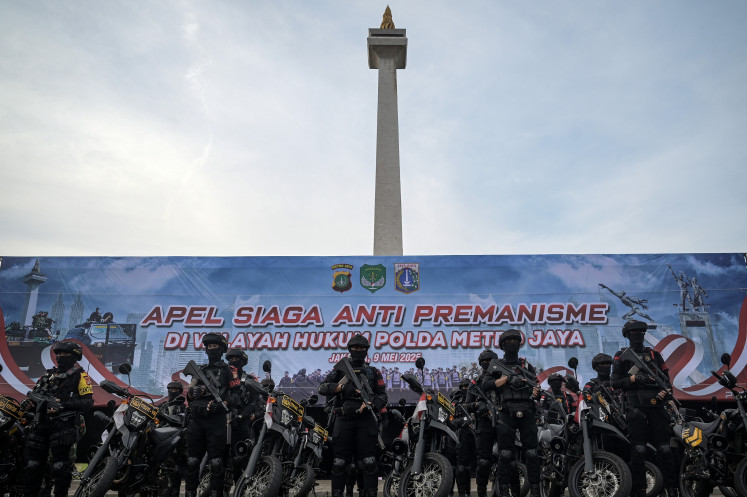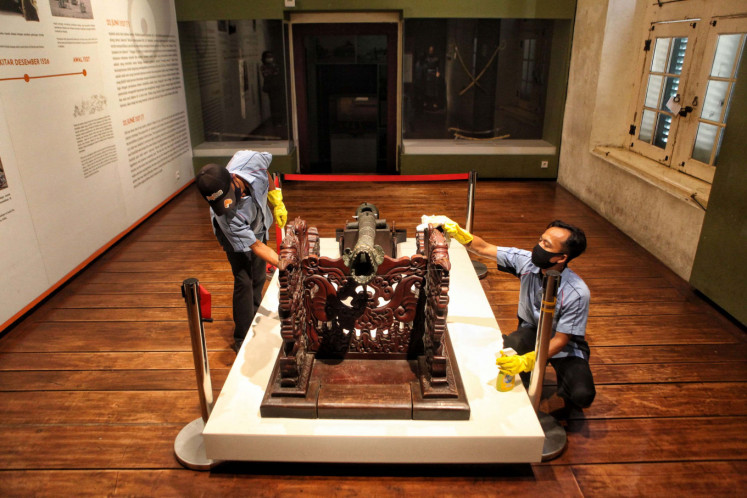Lessons from the Philippines
The late senator Benigno Aquino once said, “Anyone who succeeded Marcos, would smell like horse manure six months after taking power”
Change text size
Gift Premium Articles
to Anyone

T
he late senator Benigno Aquino once said, “Anyone who succeeded Marcos, would smell like horse manure six months after taking power”. That was because the residual effects of the dictatorship could guarantee no success; only disaster, despair and failure.
“Ninoy”, Aquino’s nickname, of course could not have predicted that his wife was the one who would later take over the presidency from Marcos. And fortunately, his prediction did not come true.
The presidency of Corazon “Corry” Aquino, did not last for six months, but six years. Not only that, her leadership in the “people power” movement that toppled Marcos in 1986 also inspired democratic changes in many parts of the world, including in Indonesia a decade later.
During her presidency, the Philippines was an example of a country in democratic transition. Despite 6 coup attempts, which on average meant one coup for each year of her term, she did not step down from the advancement of freedom.
Although she was an internationally recognized democratic champion, the Philippine economy during her presidency was no success story. She did not make much ground in alleviating poverty, eradicating rampant corruption or improving the delivery of basic services.
Aquino herself did not deny that fact. She admitted that her country remained poor after they toppled Marcos. Nevertheless, the Philippines has provided the world with the undisputed wisdom that the difficult path to democracy is possible. And they did not keep the success for themselves, they shared the experience and taught South Africa, South America and also Indonesia in the first election after reformasi in 1999, how to conduct clean elections.
Indonesia and the Philippines have shared similar experiences after the two countries successfully toppled their dictators. The two countries have successfully held peaceful and relatively fair elections, and our economies have also been struggling to achieve a better performance until now.
There is one thing, however, that differentiates us from the Philippines. It is their commitment to making a “clean break with the past”, as Cory Aquino dubbed it. At the height of the “people power” revolt in EDSA, Corry said in one of her speeches that American officials had floated the idea of “power sharing” between herself and Marcos, to ensure a smooth and peaceful transition to democracy.
“I sank the idea. I refused to serve my people the tainted fruit of a poisoned democracy… I wanted a clean break with the past and a fresh start for the future,” she said.
When they said in 1986 to the Marcos regime “Tama na, sobra na, palitan na” (enough already, too much already, time to change), they really meant it. They stopped giving chances to Marcos — he had to fly to Hawaii in exile — and they did not re-glorify the dictator.
Here, a political party just a few months ago praised Soeharto as one of the country’s national heroes.
Perhaps, what significantly differentiates us is when Corry Aquino issued Executive Order No.1 as soon as she resumed power from Marcos.
The order established the Presidential Commission on Good Government (PCGG) with the main task of recovering ill-gotten wealth accumulated during the Marcos regime. The word “regime” means Marcos’s immediate family, relatives, subordinates and close associates, whether located in the Philippines or abroad, including the takeover or sequestration of all business enterprises and entities owned or controlled by them, during his administration, directly or through nominees, by taking undue advantage of their public office and/or using their powers, authority, influence, connection and relationship.
Marcos was ranked number two after Soeharto in the World Bank’s “top ten” list of accused thieving politicians. Recent reports of the PCGG showed they have recovered about one third of the US$10 billion in stolen national assets. Relatively speaking it is not that much, but at least they did it.
What has Indonesia done against Soeharto?
The writer was a student activist during the reformasi, and now is a political-economic and development analyst. He is also member of the Steering Committee of the Network of Social-Democracy in Asia, which is headquartered in Manila.









